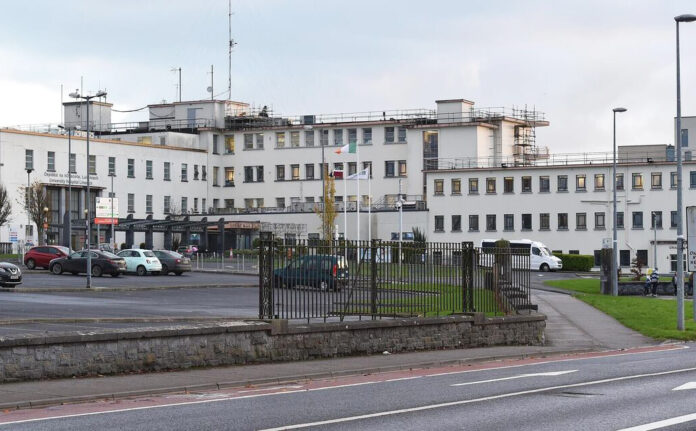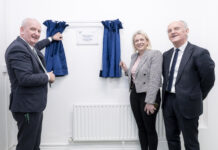
RESPONDING to measures outlined by Health Minister Stephen Donnelly during his visit yesterday (Thursday) to the crisis-hit University Hospital Limerick (UHL), the Mid West Hospital Campaign said that it welcomed any measure, “no matter how small”, that helped alleviate the hospital’s overcrowded conditions.
The Mid West Hospital Campaign (MWHC) welcomed the new ‘GP on the door’ services at UHL’s emergency department (ED), noting the concept’s previous success in the NHS.
However, the campaign described the measures announced by the Minister as “sticking plasters, and re-used sticking plasters at that”.
In a statement issued after the Health Minister’s crisis visit with HSE boss Bernard Gloster, the campaign claimed that some of the measures – including the weekend rostering of consultants – had been tried already, but with little lasting effect and that other measures, such as the re-opening of the injury units in other hospitals on a 24-hour basis, had been announced previously.
One of the headline figures announced by Minister Donnelly was the increase of the actual total of new beds in the new 96-bed block under construction at UHL from 47 to 71, which was described as “just a drop in the ocean compared to what is required” by MWHC representative Mary Cahillane.
“To add insult to injury, none of these old or newly announced beds will be available until at least 2025,” she said.
Since the start of this year, there has been a 14 per cent increase in the number of people presenting at UHL’s emergency department compared to the same period last year and the number of patients on trolleys has increased by 49 per cent year on year.
According to HSE figures, UHL is the only hospital this year showing an increase in trolley numbers.
The campaign also highlighted how Minister Donnelly described how measures similar to those announced at UHL had “proved to be successful when deployed in Waterford, Mullingar, Beaumont, and elsewhere” in reducing trolley numbers, arguing that these were “false comparisons as he fails to mention the comparative health provision in these areas”.
“Waterford has a Model 4 hospital, but also has access to four Model 3’s and one Model 4 (Cork University Hospital) in under an hour,” said campaign spokesperson Marie McMahon, whose husband Tommy Wynne died on a trolley at UHL in 2018.
“Mullingar has a Model 3 hospital and seven emergency departments within an hour’s travel time. Beaumont is a Model 4 hospital and similarly has the support of seven hospitals with emergency departments within an hour’s distance.”
Ms McMahon pointed out that the “demonstrably overstretched UHL” provides the “only emergency department” for a catchment area of over 400,000 people.
Tanya De Vito, of the Nenagh Needs Its A&E campaign, said that “the plan to convert the new 50-bed community nursing unit in Nenagh into a step down facility for UHL is a case of “robbing Peter to pay Paul”.
“St Conlon’s nursing home was deemed unsafe by the HSE years ago, and now they want to keep it open while the nursing home built to replace it is leased to a private contractor to alleviate overcrowding in UHL. It really is a betrayal of the older people in our community who deserve better than to be a scapegoat for the failures of others.”
Campaign leaders acknowledged that the announcement a ‘virtual ward’ was one of the Minister’s more innovative measures, but suggested that he had “failed to mention that in order to avail of a virtual ward you have to be well and be discharged from hospital, not to mention the need for the strong broadband service that would be needed for rural areas”.
“The politicians cynically turn up for photo opportunities come election time, but will not come out publicly and support the reversing of the failed reconfiguration of services including the downgrading of those A&Es into minor injury units,” Ms Cahillane said.
“Clinical advice is used as a smokescreen for politicians to hide behind. They say that the smaller A&Es are unsafe without adequate intensive care support on site, but instead of adding these services, they chose to close them all and crowd everyone into the last remaining A&E in the region.”
The campaign announced that it would be stepping up its drive to re-open the region’s emergency departments, starting with a ‘Drive to Save Lives’ convoy through Limerick City on Saturday April 13.










